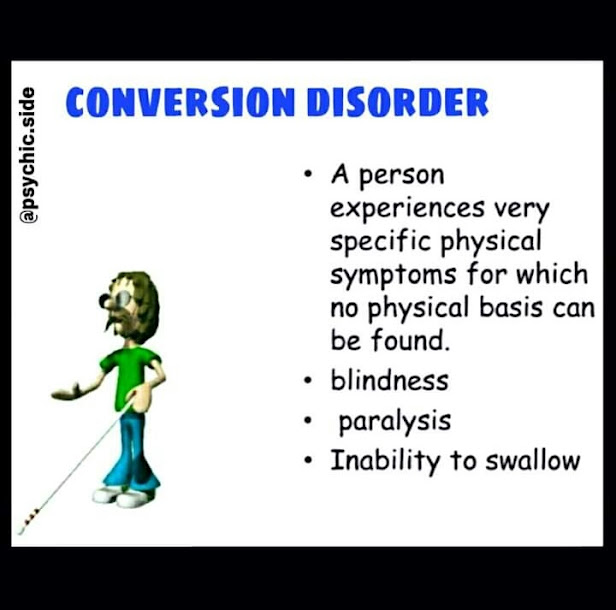NEUROLOGICAL DISORDERS (conversion, Dissociative, somatoform disorders)

Conversion disorder • Presence of deficits affecting motor or sensory function suggesting a medical or neurological disorder. • Development of symptoms usually in the presence of significant psychological stressor. • Temporal relationship between stressor and development of symptoms. • Patient does not intentionally produce the symptoms. • Detailed physical examination do not reveal any abnormality that can explain the symptoms. • The symptoms may have a symbolic relationship with the stressor. • Sudden onset. Types of disturbance 1) Dissociative motor disorders - motor disturbance involves paralysis or abnormal movements. 2) Dissociative sensory disorders - sensory disturbance involves sensation blindness, deafness, touch, pain. 3) Dissociative convulsions - it is characterised by presence Convulsive movement and partial loss of consciousness. Treatment plans for conversion disorder : Behaviour therapy - aversion therapy, free association. Psychotherapy with abreaction - support...
